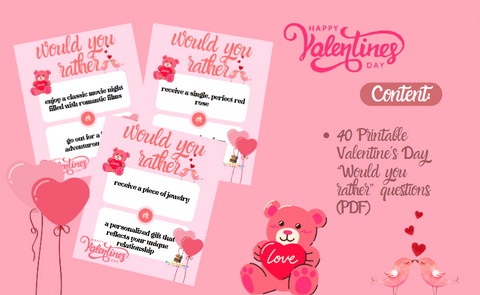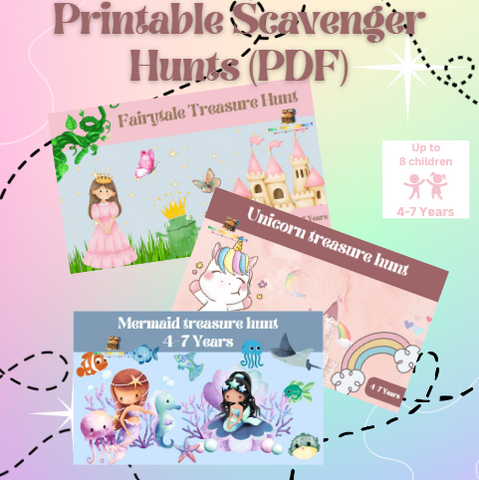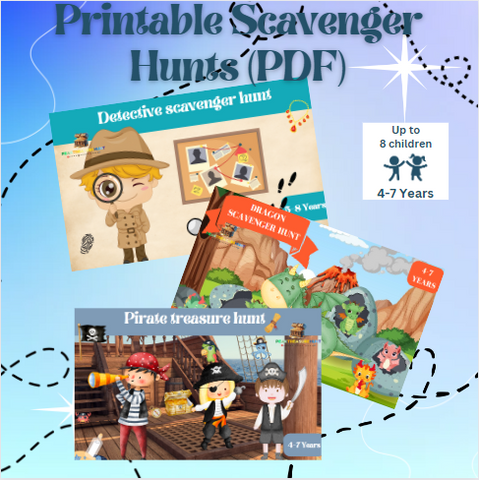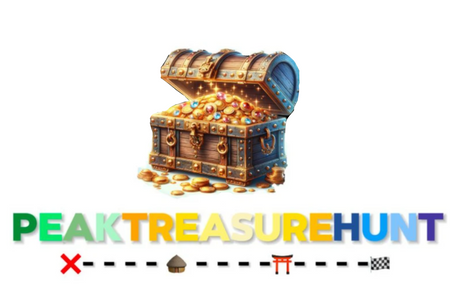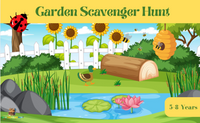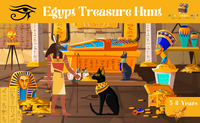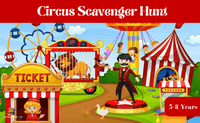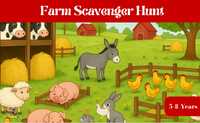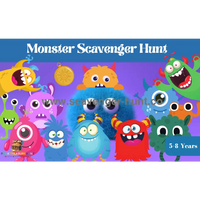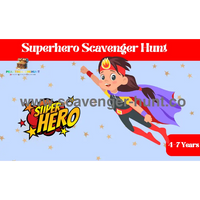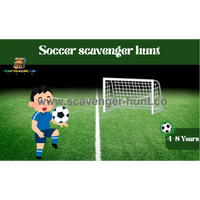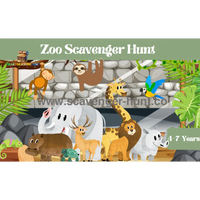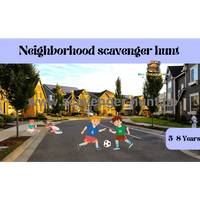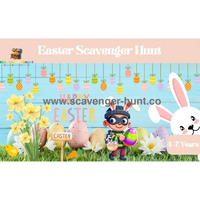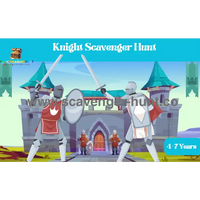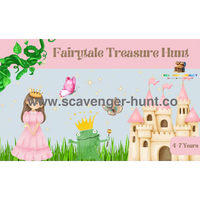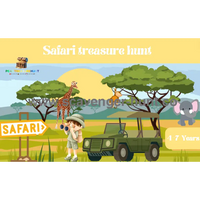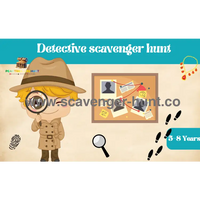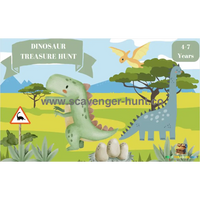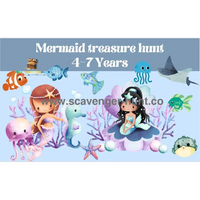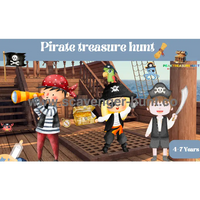💳150 Fun Would You Rather Questions for Kids: A Family Game Night Essential
Engaging kids in conversations that stretch their imagination and moral compass can be both entertaining and educational. Would You Rather cards, featuring 150 questions tailored for kids at the end of the blog, aged between 4 and 12, offer a unique opportunity to do just that. This interactive game not only serves as a fun activity but also aids in the development of critical thinking and decision-making skills. Throughout this blog, we'll delve into the world of Would You Rather Questions, providing insights into how they can be used to foster lively discussions, laughter, and learning moments. Whether you're a parent, teacher, or caregiver, these questions will become an invaluable resource for connecting with children and encouraging them to think deeply about their choices.
Crafting Engaging Questions for Young Minds
Creating Would You Rather Questions that captivate children involves a blend of imagination, humor, and educational value. This chapter will explore how to strike the right balance between fun and thought-provoking content, ensuring the questions are age-appropriate and stimulating.
When it comes to engaging children's minds, Would You Rather Questions stand out as a remarkably effective tool. These questions not only entertain but also open doors to deeper thinking, empathy, and understanding of the world. Creating questions that resonate with children, however, is an art. It requires a delicate balance of imagination, humor, and educational value, all while being tailored to the cognitive and emotional development of young minds. This chapter delves into strategies for crafting questions that captivate, challenge, and amuse kids, ensuring that the content is both fun and thought-provoking.
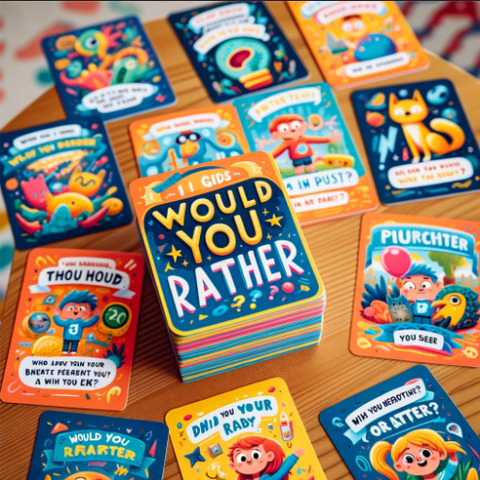
The Essence of Imagination
Imagination is the cornerstone of engaging Would You Rather Questions for kids. Questions that transport children to fantastical scenarios or impossible situations spark creativity and allow them to explore the limitless bounds of their imaginations. For instance, asking whether they'd prefer to fly to school on a magic carpet or swim to school with mermaids invites them into a world of fantasy, encouraging creative thinking and problem-solving as they ponder their choices.
Incorporating Humor
Humor plays a critical role in capturing children's attention and making the learning process enjoyable. Crafting questions with a light-hearted or silly element can make the experience more engaging for kids, encouraging laughter and joy. Questions like, "Would you rather have spaghetti for hair or corn for teeth?" not only incite giggles but also prompt children to think about absurdities in a fun and open-minded way.
Educational Value
While entertainment is important, incorporating educational value into "Would You Rather" questions can enrich children's learning experiences. Questions can be designed to subtly teach about the natural world, scientific principles, or historical facts, all within the playful structure of the game. For example, a question like, "Would you rather explore the depths of the ocean with a submarine or the surface of Mars with a rover?" can lead to discussions about marine biology, space exploration, and the technology that makes these adventures possible.
Age-Appropriateness
Ensuring questions are age-appropriate is key to keeping them stimulating and accessible. The content and complexity of the questions should be tailored to the children's developmental stage, with simpler choices for younger kids and more complex scenarios for older ones. This consideration helps maintain their interest and ensures they can fully engage with the questions without feeling overwhelmed or disinterested.
Encouraging Thoughtful Reflection
Beyond fun and learning, Would You Rather Questions can encourage children to reflect on their values, preferences, and the reasons behind their choices. Questions that pose dilemmas or require weighing different outcomes can foster critical thinking and decision-making skills. For example, asking, "Would you rather have the ability to read every book in the world or the ability to listen to every song ever created?" can lead children to think about the value of knowledge, art, and personal preference.
Diversity and Inclusion
Including a diverse range of scenarios and choices in Would You Rather Questions can promote inclusivity and broaden children's perspectives. Questions should reflect a variety of cultures, lifestyles, and viewpoints, helping children appreciate the rich tapestry of human experience and the beauty of differences.
Crafting engaging Would You Rather Questions for Kids minds is a nuanced process that blends entertainment with education, imagination with reflection, and humor with inclusivity. By carefully considering these elements, you can create a collection of questions that not only captivate children's interest but also stimulate their thinking, broaden their horizons, and enrich their understanding of the world and themselves. Through this playful yet profound approach, Would You Rather Questions become more than just a game; they become a gateway to curiosity, learning, and growth.
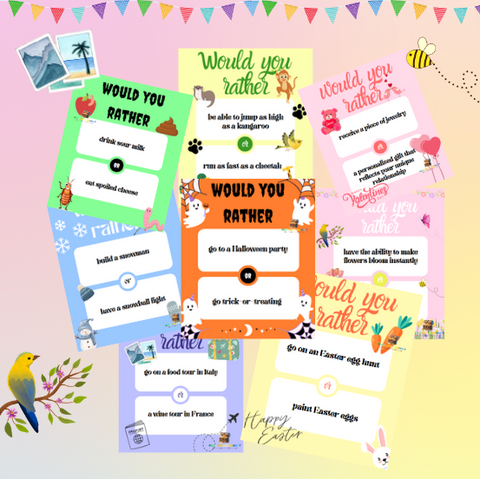
Incorporating "Would You Rather" Questions into Daily Routines
Discover ways to seamlessly integrate Would You Rather Questions into daily activities, from dinner conversations to car rides, turning mundane moments into opportunities for engagement and learning.
Educational Benefits of "Would You Rather" Questions
This chapter highlights the educational advantages of Would You Rather Questions, including the development of critical thinking, empathy, and decision-making skills, making learning an enjoyable experience.
Would You Rather Questions are not only a source of entertainment but also a powerful educational tool that can significantly contribute to a child's cognitive, social, and emotional development. This playful approach to learning harnesses the natural curiosity of children, engaging them in scenarios that require thought, judgment, and creativity. This chapter explores the multifaceted educational benefits of incorporating Would You Rather Questions into both formal and informal learning environments, highlighting how they can foster critical thinking, empathy, decision-making skills, and make the process of learning a more enjoyable and immersive experience.
Fostering Critical Thinking and Problem Solving
At the heart of Would You Rather Questions is the development of critical thinking skills. Presented with two options, children must analyze, compare, and contrast the potential outcomes of their choices. This process encourages them to delve deeper into their reasoning, considering not just the immediate appeal of an option, but its broader implications. Such questions stimulate cognitive processes such as evaluation, inference, and explanation, which are fundamental components of critical thinking.
Enhancing Decision-Making Skills
Decision-making is a vital life skill, and Would You Rather Questions provide a safe and engaging way for kids to practice making choices. By weighing the pros and cons of different scenarios, kids learn the importance of thoughtful consideration before deciding. This practice not only aids in their ability to make more informed decisions but also helps them understand that choices often come with consequences, teaching them to anticipate and accept the outcomes of their decisions.
Promoting Empathy and Perspective-Taking
Would You Rather Questions can also serve as a gateway to developing empathy and understanding different perspectives. When questions involve scenarios that require children to imagine themselves in situations unlike their own, they learn to consider and value diverse viewpoints. This empathetic engagement encourages children to step outside their comfort zones and fosters a deeper understanding of the feelings and experiences of others, enhancing their social and emotional intelligence.
Encouraging Language Development and Communication Skills
Engaging in "Would You Rather" discussions naturally promotes language development and communication skills. As kids articulate their choices and justify their reasoning, they practice expressing complex ideas and emotions. This not only expands their vocabulary but also improves their ability to construct coherent, persuasive arguments. Furthermore, the interactive nature of these questions encourages listening skills, as children must pay attention to others' responses and engage in meaningful dialogue.
Making Learning Enjoyable and Relatable
One of the most significant educational benefits of Would You Rather Questions is their ability to make learning enjoyable and relatable. By framing educational content within the context of these questions, kids can explore subjects like science, history, and literature in a fun and engaging manner. This approach can transform abstract or challenging concepts into tangible, interesting scenarios, increasing children's motivation and enthusiasm for learning.
Cultivating Creativity and Imagination
Would You Rather Questions also have the unique advantage of cultivating creativity and imagination. Faced with hypothetical scenarios, children are encouraged to think creatively, exploring possibilities beyond the conventional. This imaginative play not only enriches their creative thinking but also supports their ability to generate innovative solutions to problems, an essential skill in both academic and real-world contexts.
Incorporating Would You Rather Questions into educational activities offers a dynamic and multifaceted approach to learning that benefits children's cognitive, social, and emotional development. These questions not only enhance critical thinking, decision-making, and empathy but also make learning an enjoyable and immersive experience. By leveraging the educational power of Would You Rather Questions, educators and parents can provide children with the skills and knowledge they need to navigate the complexities of the world with confidence, curiosity, and compassion.

Hosting a "Would You Rather" Game Night
Learn how to organize a memorable game night centered around Would You Rather Questions, creating an inclusive and fun environment that encourages children to express themselves and listen to others.
Organizing a game night centered on Would You Rather Questions can turn an ordinary evening into an extraordinary gathering filled with laughter, lively debates, and moments of introspection. This engaging and interactive event is not just about entertainment; it's a wonderful opportunity to foster communication, encourage self-expression, and listen actively in a fun and inclusive setting. Here's how to plan and execute a memorable Would You Rather Game Night that will keep kids and even adults entertained and engaged.
Planning the Event
-
Set the Date and Invite Participants: Choose a date that works for most people and send out invites. Consider creating a themed invitation that hints at the fun, decision-making dilemmas ahead.
-
Prepare Your Question List: Curate a diverse list of "Would You Rather" questions tailored to the age group and interests of your participants. Ensure a good mix of silly, imaginative, and thought-provoking questions to cater to different moods and moments.
-
Create a Comfortable Setting: Arrange your space to encourage interaction among guests. A cozy living room with seating in a circle can create an inviting atmosphere for sharing and discussion.
-
Set the Rules: Explain the game's simple rules at the beginning of the night. Make sure everyone understands the importance of respecting each other's opinions and listening attentively.
During the Game Night
-
Warm-Up with Easy Questions: Start with light-hearted and silly questions to break the ice and get everyone comfortable with sharing.
-
Take Turns: Let everyone have a turn to ask a question from the list. If children are shy, they can pass their turn to someone else, or an adult can read the question on their behalf.
-
Encourage Explanation: After choosing between options, encourage participants to explain their choice. This can lead to interesting conversations and deeper understanding of one another.
-
Use Props for Fun: Introduce props such as a microphone for the current speaker or a "decision hat" for choosing who goes next. This can add a playful element to the game.
-
Keep it Inclusive: Make sure every child feels comfortable and included. Adapt questions on the spot if needed to ensure they are appropriate for everyone present.
-
Include Snacks and Breaks: Have some snacks and drinks available for breaks between rounds. This keeps the energy up and gives everyone a chance to mingle and discuss the game informally.
Making It Educational and Inclusive
-
Reflect on Choices: Use the opportunity to discuss why certain choices might be made in real life, linking fun scenarios to real-world learning and ethical thinking.
-
Diverse Scenarios: Ensure your questions represent a wide range of cultures, perspectives, and scenarios to promote inclusivity and broaden participants' horizons.
-
Feedback Time: At the end of the night, have a quick round of feedback about what everyone enjoyed the most and what they learned about themselves or others.
A Would You Rather Game Night is more than just a playful gathering; it's a platform for building communication skills, fostering empathy, and encouraging critical thinking in a relaxed and supportive environment. By carefully planning your event, curating your questions, and ensuring a respectful and inclusive atmosphere, you can create an unforgettable experience that participants will talk about long after the night is over. This game night not only entertains but also strengthens bonds among friends and family, making it a meaningful addition to any social calendar.

Customizing Questions for Different Age Groups
Tailoring questions to suit the developmental stages of kids is key to maintaining their interest. This chapter provides tips on modifying questions for various age groups, ensuring everyone can participate and enjoy.
Creating an engaging and enjoyable experience for children of all ages through Would You Rather Questions requires thoughtful customization. Children at different developmental stages have varying levels of comprehension, interests, and abilities to express themselves. Tailoring questions to align with these stages ensures that every child can actively participate, think critically, and have fun. This chapter outlines strategies for adapting Would You Rather Questions to different age groups, from preschoolers to pre-teens, ensuring an inclusive and stimulating experience for everyone involved.
For Preschoolers (Ages 4-5)
Kids in this age group are driven by curiosity and a burgeoning sense of imagination but may have limited vocabulary and comprehension skills.
-
Use Simple Language: Craft questions with straightforward choices and simple words that they can easily understand.
-
Incorporate Familiar Scenarios: Base questions on familiar settings and characters from their favorite stories, cartoons, or daily life experiences.
-
Engage Their Senses: Pose questions that involve choosing between different sensory experiences, such as tastes, sounds, and colors, to stimulate their sensory learning.
For Early Elementary (Ages 6-7)
At this stage, kids have a better grasp of language and are starting to develop their problem-solving skills. They enjoy creative play and exploring the world around them.
-
Introduce Light Challenges: Craft questions that require a bit more thought, such as simple puzzles or scenarios that ask them to make decisions based on their preferences.
-
Promote Imagination: Use fantastical elements like magic, space travel, or talking animals to captivate their interest and encourage creative thinking.
-
Focus on Playfulness: Keep the tone light and fun, allowing for laughter and silliness to keep them engaged and entertained.
For Middle Elementary (Ages 8-9)
Kids in this group are becoming more independent and capable of complex thought. They start to show a keen interest in the world and enjoy games that challenge their intellect.
-
Encourage Problem Solving: Design questions that encourage them to use logic and reasoning, such as scenarios requiring them to choose between different solutions to a problem.
-
Stimulate Curiosity: Include questions that touch on real-world phenomena, basic scientific facts, or historical events, sparking their curiosity to learn more.
-
Promote Social Awareness: Begin to introduce scenarios that encourage empathy and perspective-taking, helping them to consider others' feelings and viewpoints.
For Pre-Teens (Ages 10-12)
Pre-teens are capable of abstract thinking and are beginning to form their own opinions and values. They appreciate challenges to their intellect and opportunities to express their individuality.
-
Introduce Ethical Dilemmas: Pose questions that involve making ethical choices or considering the consequences of actions, fostering critical thinking and moral reasoning.
-
Encourage Personal Expression: Include questions that allow them to express their growing individuality and preferences, such as choices that reflect their interests, aspirations, and values.
-
Facilitate Deeper Discussions: Craft questions that can lead to deeper discussions about society, the environment, technology, and future aspirations, catering to their growing awareness of the world around them.
Tips for Inclusivity and Engagement
-
Adapt Questions on the Fly: Be prepared to modify questions based on the reactions and responses of the children to ensure everyone remains engaged.
-
Include Everyone: Ensure questions are inclusive and considerate of all participants' experiences and backgrounds, fostering a safe and welcoming environment.
-
Encourage Sharing: Foster an atmosphere where children feel comfortable sharing their thoughts and rationale behind their choices, enhancing the learning experience for everyone.
Customizing Would You Rather Questions for different age groups is essential for creating an inclusive, engaging, and educational experience. By tailoring questions to match the developmental stages and interests of children, you can stimulate their imagination, encourage critical thinking, and foster meaningful discussions. This thoughtful approach ensures that Would You Rather Games are not only fun but also contribute positively to children's social, emotional, and cognitive development.
150 Would You Rather Questions
Imagination and Fun
- Would you rather fly like a bird or swim like a fish?
- Would you rather have a pet dinosaur or a pet dragon?
- Would you rather be able to talk to animals or speak all foreign languages?
- Would you rather have super strength or super speed?
- Would you rather be invisible for a day or be able to fly for a day?
- Would you rather live in space or under the sea?
- Would you rather have a magic carpet that flies or your own personal robot?
- Would you rather be a wizard or a superhero?
- Would you rather have the ability to freeze time or travel through time?
- Would you rather have a tail that can grasp things or have wings?
Silly and Light-hearted
- Would you rather only be able to hop like a kangaroo or walk backwards?
- Would you rather have hands for feet or feet for hands?
- Would you rather always have to sing instead of speaking or dance everywhere you go?
- Would you rather have a nose like a elephant or ears like a rabbit?
- Would you rather only eat pizza for every meal or never eat pizza again?
- Would you rather have a unicorn horn or a peacock tail?
- Would you rather always wear clown shoes or a clown wig?
- Would you rather bathe in jelly or swim in a pool of chocolate?
- Would you rather always talk in rhyme or sing every word you say?
- Would you rather have a permanent clown face or a permanent superhero costume?
Nature and Adventure
- Would you rather explore the depths of the ocean or the vastness of space?
- Would you rather have a treehouse or a cave as your secret hideout?
- Would you rather be able to control the weather or control time?
- Would you rather camp in the wilderness or stay in a luxury hotel?
- Would you rather go on a safari or go deep sea diving?
- Would you rather be an excellent climber or an excellent swimmer?
- Would you rather ride a horse or a camel?
- Would you rather have a picnic in a forest or on a beach?
- Would you rather be a famous explorer or a famous inventor?
- Would you rather have a garden of flowers or a garden of fruits and vegetables?
Everyday Choices
- Would you rather always have to whisper or always have to shout?
- Would you rather have pancakes for breakfast every day or never have pancakes again?
- Would you rather be able to read minds or be invisible?
- Would you rather have an endless supply of candy or an endless supply of ice cream?
- Would you rather never have homework again or have no tests at school?
- Would you rather be able to change the color of your hair at will or the color of your clothes?
- Would you rather only be able to use a fork (no spoon) or only be able to use a spoon (no fork)?
- Would you rather always wear your shoes on the wrong feet or wear your pants backward?
- Would you rather have a snowball fight or a water balloon fight?
- Would you rather have a pet rabbit or a pet turtle?
Thoughtful and Reflective
- Would you rather never get tired or never have to eat?
- Would you rather know everything about space or know everything about the ocean?
- Would you rather be able to build anything you imagine or draw anything perfectly?
- Would you rather have the power to heal any illness or the power to teleport anywhere?
- Would you rather be the best at any sport you try or excel in any subject at school?
- Would you rather never feel sad or never feel angry?
- Would you rather spend a day in the past or in the future?
- Would you rather have the ability to talk with past heroes or future generations?
- Would you rather be famous for a talent or for doing something heroic?
- Would you rather have a photographic memory or be a genius at math?

Frequently Asked Questions
1. How do I choose appropriate "Would You Rather" questions for my child's age group?Select questions that align with their interests and cognitive abilities, avoiding topics that are too complex or too simple for their developmental stage.
2. Can "Would You Rather" questions help with my child's language development?
Absolutely! These questions encourage verbal expression and vocabulary expansion as children explain their choices.
3. How often should I introduce new "Would You Rather" questions to my child?
Introducing new questions regularly keeps the game fresh and exciting. Try adding new questions every week or mixing in special themed questions for holidays and events.
4. Are there any topics I should avoid in "Would You Rather" questions for kids?
Yes, avoid topics that might be too mature, sensitive, or potentially frightening for children. Focus on light-hearted, imaginative scenarios.
5. How can I encourage shy children to participate in "Would You Rather" discussions?
Create a supportive environment where every answer is valued. You can also start with simpler questions and gradually move to more complex ones as they become more comfortable.

Summary
Would You Rather Cards, with their 150 questions designed for kids, are more than just a game; they are a doorway to enriching conversations and valuable learning moments. By carefully planning the theme, clues, and questions, you can create an unforgettable experience that not only entertains but also educates. Remember, the true treasure lies in the moments of connection, laughter, and thoughtful reflection that arise from these questions. So, embark on this journey of exploration and discovery, and watch as your young explorer and their friends engage in a world of imagination, moral dilemmas, and endless possibilities.
The Would You Rather Game, especially when enriched with 150 carefully crafted questions for kids, transcends the realm of simple entertainment to become a profound educational tool. This collection of dilemmas is ingeniously designed to engage young minds in a vast array of scenarios, ranging from whimsical and humorous to thought-provoking and introspective. By introducing this game into the lives of kids, parents, educators, and caregivers can unlock doors to deep, meaningful conversations that not only entertain but also illuminate the nuances of decision-making, empathy, and creative thinking.
The true essence of "Would You Rather" lies far beyond its immediate fun. It resides in the precious moments of connection it fosters among players, the laughter it spreads, and the seeds of thought it plants in young minds. As kids navigate through each question, they embark on a journey of self-discovery, learning more about their own preferences, values, and the complexities of the world around them. This journey is peppered with opportunities to develop critical thinking, articulate personal views, and appreciate diverse perspectives.
Organizing a game night centered around Would You Rather Questions, integrating them into daily routines, or simply posing a question or two during moments of transition can transform mundane interactions into rich, engaging experiences. Tailoring these questions to suit various age groups ensures that every kid, regardless of their developmental stage, can partake in and benefit from the game. The educational advantages of such an approach are manifold, fostering not just academic skills like language development and logical reasoning but also nurturing emotional intelligence, social awareness, and moral reasoning.
In conclusion, Would You Rather Cards are not merely a collection of questions; they are a carefully curated adventure into the world of imagination, ethics, and exploration. They offer a unique blend of fun and learning, making them an invaluable resource for anyone looking to enrich the lives of kids. By embracing this tool, you invite your young explorer and their peers to dive into a world brimming with moral dilemmas, imaginative scenarios, and endless possibilities. So, embark on this journey of exploration and discovery, and revel in the joy, growth, and connections it fosters.

Discover our complete Would You Rather Questions collection.
Discover our Complete Scavenger Hunts Collection.




